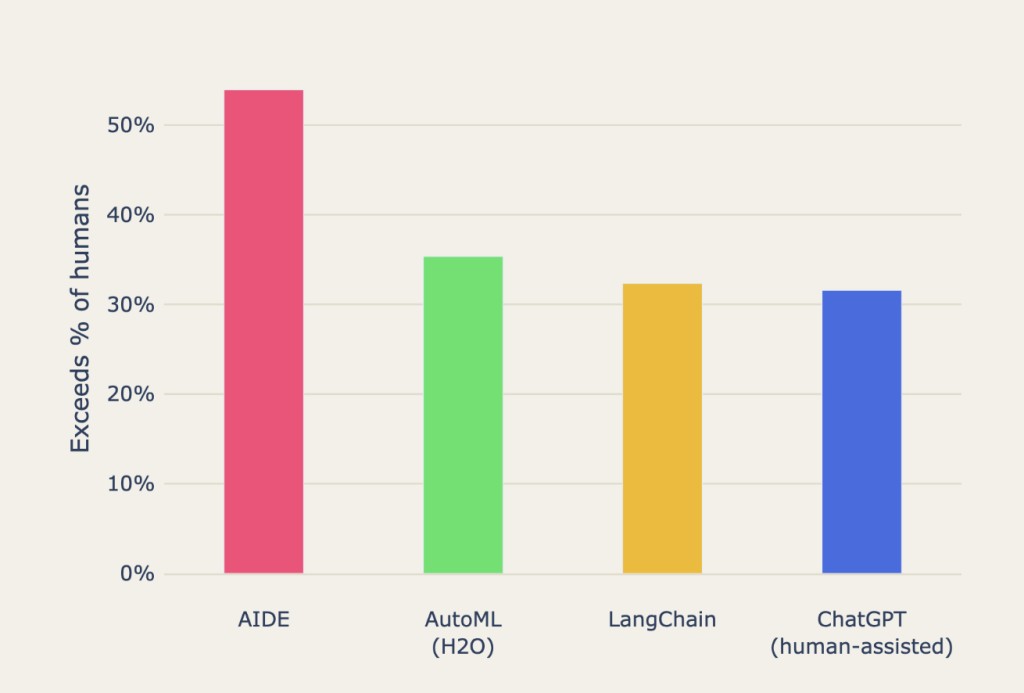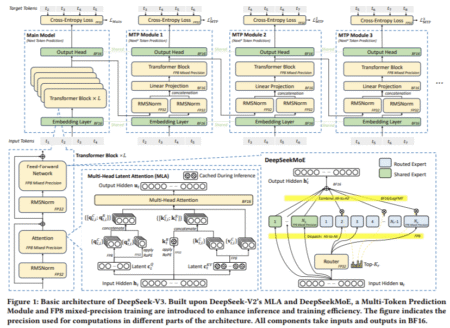In a remarkable development within the artificial intelligence industry, Weco AI has unveiled AIDE, a groundbreaking AI agent designed for data science tasks. This agent achieved human-level performance in the prestigious arena of Kaggle competitions. This milestone is not only proof of AI’s ability to handle complex data science problems but also a sign of a significant change in the way data science may be conducted in the future.
Kaggle competitions are widely recognized as the benchmark for evaluating the skill level of data scientists and machine learning engineers. These competitions present actual problems that need to be solved, ranging from predicting housing prices to improving medical diagnoses through data analysis and predictive modeling. AIDEhas set itself apart by participating in various competitions and surpassing half of the human contestants on average. This achievement highlights the agent’s advanced comprehension of competition requirements, its capacity to design and implement solutions autonomously, and its ability to generate submission files without any human involvement. AIDE’s performance also outshines traditional AutoML systems like H2O, as well as other AI agents like LangChain and ChatGPT when assisted by humans.
AIDE‘s success lies in its exceptional problem-solving approach, which is inspired by the methodologies of human data scientists. AIDE uses a technique called Solution Space Tree Search. It involves generating initial solution drafts and refining them iteratively based on performance feedback. This approach mirrors the adaptive creativity and systematic rigor of human problem-solving. It enables AIDE to tackle complicated challenges with unparalleled efficiency.
The capabilities of AIDE have implications that go beyond the boundaries of Kaggle competitions. By making AIDE open-source, Weco AI is making advanced technology accessible to everyone, enabling expert users to run it locally for better data privacy and customization and to utilize their computing resources. With over 60 solutions to Kaggle competitions already showcased on its GitHub repository, AIDE is a valuable resource for data scientists and AI enthusiasts alike.
Weco AI undertook a comprehensive benchmarking protocol to evaluate the performance of AIDE across a diverse range of data science tasks. The results demonstrated that AIDE exhibits remarkable versatility and cost-efficiency and effectively leverages an array of existing libraries and tools. This attests to AIDE’s robustness and its potential to significantly mitigate the cost and time associated with data science undertakings.
The release of a cloud-based version of AIDE, along with its soon-to-be-released open-source version, signifies a significant milestone in the crossroads of artificial intelligence and data science. This development not only paves the way for new opportunities in the fields of research and application but also breaks down the conventional limits of what machines can accomplish in areas that were once believed to be the exclusive domain of human expertise.
Key Takeaways:
AIDE, an AI-powered data science agent by Weco AI, has achieved human-level performance in Kaggle competitions, outperforming half of the human participants and traditional AutoML systems.
The agent’s success is attributed to its Solution Space Tree Search technique, mirroring the problem-solving approach of human data scientists.
AIDE will be open-sourced, enabling expert users to run it locally for greater customization and data privacy.
The agent’s performance was rigorously benchmarked across over 60 data science competitions, highlighting its versatility, cost-efficiency, and the wide range of Python libraries it utilizes.
AIDE’s development represents a significant milestone in AI’s role in data science, challenging traditional perceptions and opening new possibilities for research and practical applications.
Join the waitlist for early access to the cloud-hosted version!
The post Weco AI Unveils ‘AIDE’: An AI Agent that can Automatically Solve Data Science Tasks at a Human Level appeared first on MarkTechPost.
Source: Read MoreÂ

